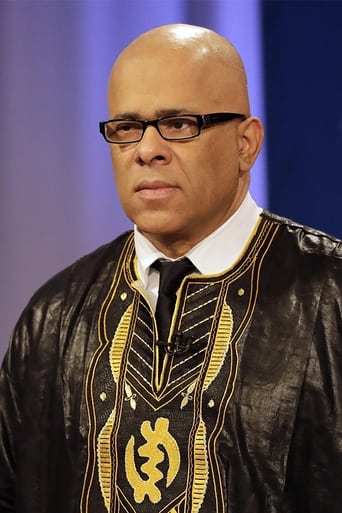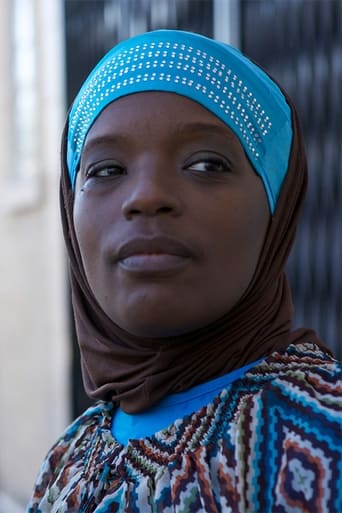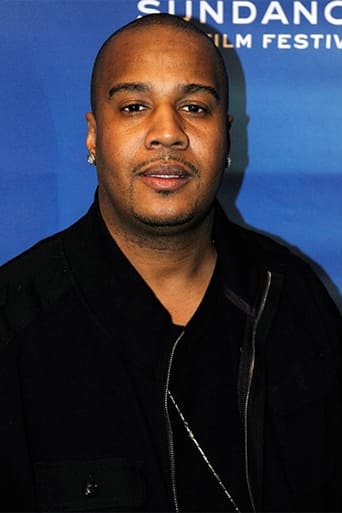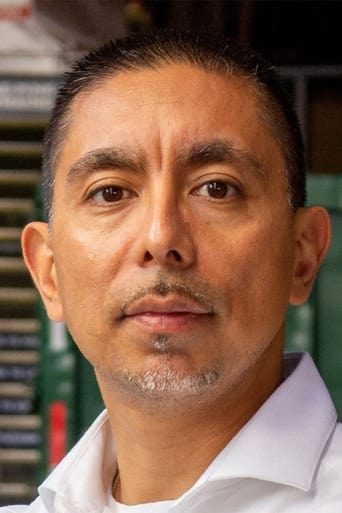AniInterview
Sorry, this movie sucks
AshUnow
This is a small, humorous movie in some ways, but it has a huge heart. What a nice experience.
Portia Hilton
Blistering performances.
Mohith Reddy
This documentary enables us to understand the problems, conflicts that are a day in day out situation in a neighborhood plagued by violence. Its quite moving to see ex felons and gang leaders working to prevent the youngsters making the same mistakes they did. Violence is like virus and it shows the struggle of few and their persistence to make a difference how ever small it might be. We get to see the trans-formative effect that the group is having on the youth. We get to see and feel the loss experienced by families and friends due to violence. This documentary does not provide answers but sure makes us think deeply about a critical issue. Life is not easy and fair, it teaches us the importance of forgiveness in order to live a peaceful life. An eye for an eye is only going to make the whole world blind.
Steve Pulaski
Steve James' documentary The Interrupters opens with audio taken from several different Chicago news sources, reporting "x" number of people murdered in the city, and how an outbreak of gun violence has ripped apart the area as a whole. We then cut to a volunteer organization that takes the courageous act of stepping in at the sight of conflict amongst gang-members, and works to try and prevent yet another death in a city so consumed by heinous crimes. This group is called "the Interrupters," and for the next two hours we witness their invaluable actions.The Interrupters work for an organization called "CeaseFire," and its members are comprised of former gang-members; a positive, being that since they are still young, they can speak the language of the gangs and recall the motives of an underprivileged teenager. While they work entirely for the area of Chicago, much of their time is devoted to bettering Englewood, one of the most broken cities in the entire nation. 98% of Englewood residents are black, with the main age demographic being people under the thirty. With a 25.8% unemployment rate (which has now risen to 44%, roughly two years after the release of this film), the townspeople look towards a life of gangs as a way to earn respect, money, territory, and get a quick-fix for violence and danger. This makes the area especially dangerous, not just for the gang-members of opposing territories, but the residents who want no part in the crime world. Whether you're a gang-member on the front lines of violence, a passive resident, a bystander, or even a young child you're a potential victim to a senseless problem.One of the leading violence interrupters is a bright, young woman named Ameena Mathews. Once an active gang-member, she has since married, converted to being a Muslim, and works to travel around the community promoting a truce and a compromise between opposing forces. When she bravely lectures in the middle of thirty or so gang-members about how there's no reason at all to be dealing or discussing potential crimes when children are arriving home from school, the petite woman herself is open to almost anything. Steve James and his camera crew are as well. Yet Mathews boldly preaches her gospel before traveling on to continue doing more work.Frequently, CeaseFire will hold fiery roundtable meetings, where group members will discuss what fight/argument they've broken up since the last meeting and what leads do they have on any further gang activity. During these meetings, despite several dozens of Interrupters being on the job and prepared for just about anything, it's when we see how grossly outnumbered they are. Keep in mind, Chicago isn't just Englewood, and with a population of over 3,000,000 citizens, the per-capita rate of the CeaseFire members is and will always remain outnumbered. This doesn't make their efforts any less commendable, but with over 500 homicides taken place in a city so torn in 2012, there needs to be more recruiting and soon. How much longer can a city be referred to as names like "Chiraq," and boast a statistic that states it is more violent than Iraq and Afghanistan? Aesthetically, The Interrupters is extraordinary, with several long-shots of the crisp, yet crumbling Chicagoland area. Scarcely has a documentary about going into a real issue been so engrossing visually. Yet what truly makes The Interrupters the captivating, multi-layered documentary that it is is the way it conducts its subjects. Too often do I see documentaries take the path of a scare-tactic gift-wrapped as a formal piece of information. Here, we are presented with nothing but the true homelives of these troubled teenagers and adults, who are not only bearing hard circumstances on their shoulders, but misguided direction, societal neglect, negative perceptions, and shallow stereotypes. Think about the way white people are often associated with being wealthy, pure, and successful, while black people often associated with being deviant, rude, and obnoxious. Are these stereotypes shaping us or are we shaping our stereotypes? This is a bolder question from a documentary, asked naturally, that for once doesn't come from a glaring, empty statistic.One of the smaller, yet more relevant details the film goes into is the significance of rival-gangs and how integrating them in hopes of a "melting pot"-like effect is purely hopeless on all accounts. This is shown when Carver High School, a populated urban school, was rebranded as a military academy, it forced many kids to move to a nearby neighborhood and attend Fenger High School. Carver and Fenger have a notorious gang rivalry occurring, and not long after the schools were integrated, a teenager named Derrion Albert was brutally beaten to death and the beating was captured on a cell phone to be viewed on Youtube.James, who made Hoop Dreams, which is often hailed as one of the best pieces of documentary filmmaking ever, lived a full year in Chicago, and witnessed unforeseeable acts of not just despair and ugliness, but also true bravery. Being in the line of gunfire and danger numerous times, and filming highly-graphic footage with true documentarian impunity shows not only devotion but true commitment to a job. The Interrupters was also co-produced by sociologist Alex Kotlowitz, who wrote the popular novel "There Are No Children Here: The Story of Two Boys Growing Up in the Other America," a profoundly eye-opening book on the lives of inner-city children who live in public housing projects.This is a powerhouse documentary in every sense of the word, emotional, exhilarating, heart-wrenching, and often, very melancholic. It shows that while there's a silver lining of hope reaching the Chicagoland area in terms of a method to eliminate seemingly endless gun violence, it may be too facile to call it a formal "solution" just yet.NOTE: This review was read before my English class, Junior year in high school, in March 2013.
proterozoic
Chicago, Baltimore, Oakland, Detroit – synonyms for American crime, places where young men kill one another in the streets. Bleak background noise in the national news, with dim flares of outrage at especially gruesome killings.On the subject of solutions, our imaginations are dismally poor and usually limited to applying money or violence in some form. More police, more arrests, longer sentences, talk of the National Guard on the streets.The Interrupters seem to have a better gimmick. The violence prevention group CeaseFire recruited a group of tattooed ex-gang-members in Chicago, most of whom turned away from crime after cooling off in hospitals or prisons. They know the locals, and they have credibility where cops, teachers and politicians don't.The film follows several of them: a tough gang heiress turned devout Muslim, an imposing man with several prison terms for drugs and violence, and a soft-spoken Latino out after serving 14 years for murder. Interrupters are, in effect, roaming street counselors; unlike the armchair type, they usually find themselves between two or more people who are about to begin stabbing one another. They are to ordinary counselors what BASE jumpers are to people who feel proud of taking stairs.The rare and valuable insight of the film is how, over the course of a year, the counselors manage to talk down people who're about to do horrible things, and how these people arrive at such a place to begin with. None of them are remorseless sociopaths, and none of them appear to want or relish violence. They want the best for themselves, they value their families, and yet some have come to the verge of actual fratricide. Why? Hopelessness, poor impulse control, lack of role models, a gang tribalism that feeds on vacuum and anarchy.It's amazing how many fights and murders aren't motivated by gain. They're essentially the result of undereducated boys applying the Cheney Doctrine every day on street level – "get them before they get you." On these streets, nobody trusts each other, everybody is armed and nobody is willing to back down from a fight. Tempers can flare instantly, and the killers are often as baffled by their own crimes as anybody else.Somehow, the Interrupters pull young people out of this mindset. It takes a heroic amount of trust and patience. It doesn't work all the time. But it works way more often than one imagines it should.There is a large and influential contingent in our country which holds that the only solution to inner-city violence is to tighten the screws even further. To their Klingon eyes, the CeaseFire approach probably looks like so much liberal mollycoddling of people who just ought to have their heads busted on the pavement more often. One of the thicker ironies of "The Interrupters" is that this Old Testament law enforcement mentality comes from precisely the same place as the bloody retaliations and preemptive violence by South Side gang-bangers.I listened to the young ruffians, and heard the words of steely-eyed Giulianis: not backing down, not showing weakness, getting tough, getting serious, showing them who's boss. Once you realize that "tough on crime" politicians count on the same tactics to intimidate gangs that gangs use to intimidate one another, you may recognize the same lustful rage in yourself as well, and subside to embarrassed head-scratching.The Interrupters talk about the legal trickery of being involved in potential crimes, and sometimes the organization has no choice but to get law enforcement on the case. However, their strength is not in meting out punishment, but understanding – and it's astonishing to see violent young toughs respond and open up. Even with all the money, cops and technology that America can scratch together, maybe the best way to solve social problems is still through one person talking to another.
chaz-28
The Interrupters is frustrating. The three 'violence interrupters' which this film follows must have an endless supply of optimism and an iron will to go out there every day and try and convince people, who mostly are not looking to be convinced, that there are better choices than resorting to violence and revenge. A normal person would give up, probably on the first day, but not the CeaseFire interrupters. Most of CeaseFire's violence interrupters are ex-cons. This is actually a plus on their job application for a position like this. They know firsthand the consequences and utter futility which comes with choosing the violent option in an argument on the street. Their goal is to intervene in an argument's 'front end' before pistols are drawn from waistbands. Chicago has drawn national attention for the number of murders which happen on its streets every year, especially involving adolescents. The Interrupters follows a year in the life not just of the CeaseFire organization, but specifically three of their most committed mediators. The most engaging and interesting person by far is Ameena Matthews. She is the daughter of Jeff Fort, one of Chicago's most notorious gangsters, who made mistakes in her youth but is now out in force and ready to get in your face to show you just how wrong a choice violence is. With no fear, Ameena will walk in the middle of a large group of young gangbangers and give them a lecture on just where they are headed. Amazingly, these lectures usually work. You do not want to disappoint Ameena Matthews; she is one of the most persuasive and enigmatic people ever to show up in a documentary.Her fellow mediators are not as engaging as she is though. Cobe Williams is usually an interesting guy to follow, especially when he is trying to calm down a man known as 'Flamo'. Flamo has a particularly bad day when he first meet him and appears to be 100% ready to charge down the block and start a shooting spree. Cobe listens, nods his head, and then offers to take Flamo out to dinner thereby putting some distance and time between him and his problems. We check in with Flamo every now and then and he provides some segments of comic relief and even some hope. The third mediator is Eddie Bocanegra. He comes in a distant third on this list of three. Most of the time, he is with the family of a deceased young man who made some poor choices and ended up in a coffin. Eddie strikes up a relationship with the boy's sister and encourages her to draw to deal with her grief. The rest of the time, Eddie leads an art class in a local elementary school to teach the kids who are just a few years away from their prime ages of vulnerability to think through their choices to their logical conclusions. Eddie is never shown actually talking down violent situations like Ameena and Cobe are. He acts as more of a peripheral mediator rather than a down in the mud violence buffer, at least that is how the editing process shows him. The filmmaker, Steve James (Hoop Dreams), checks in with various at risk youth throughout the year. Some start off in very shaky and turbulent places but steadily pull themselves up and out of the gutter. Others, however, leave you shaking your head at the end acknowledging that there will most likely be many more failures for the mediators than successes. Happy endings really do seem few and far between in the streets of Chicago, even when there are extremely persuasive interrupters who guarantee that if you pull the trigger, you will not win in the end.








